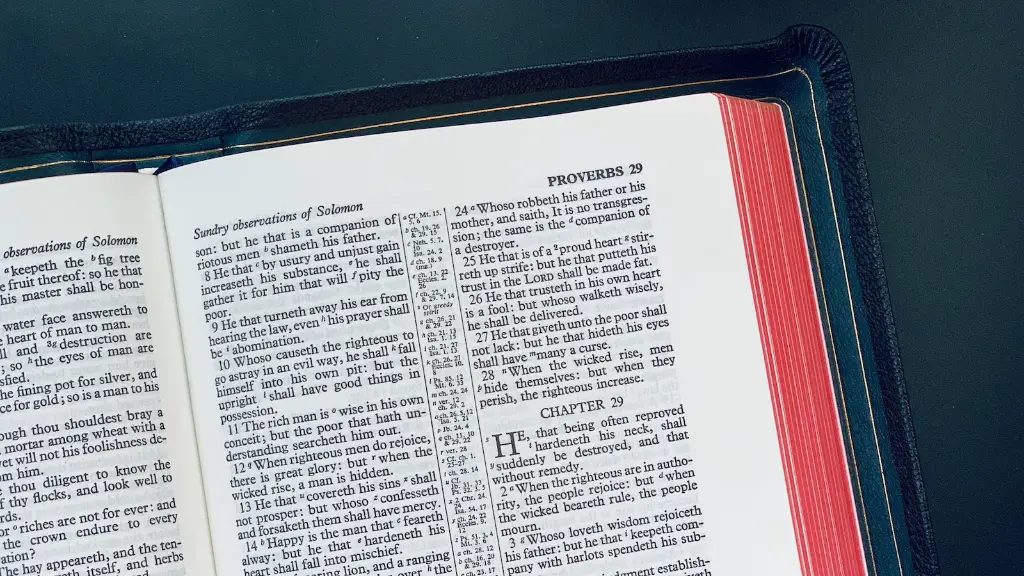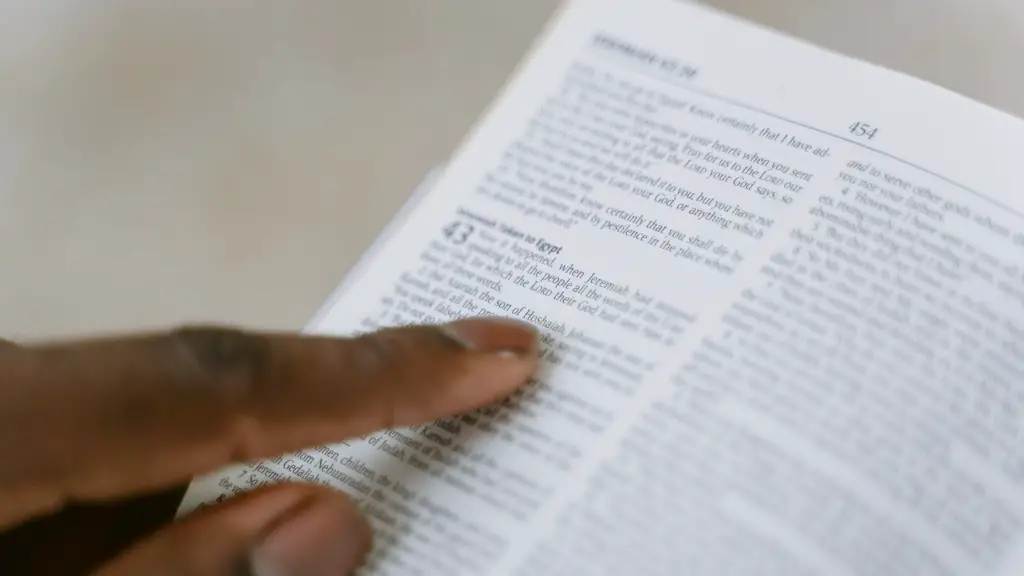God’s Role in the Creation of Earth
The Bible describes an ancient account of the creation of the world in seven days, while scholars typically identify this as a poetic representation of a much longer period of time. The story of Creation, as told in the book of Genesis, tells of how God created the heaven, the earth, the creatures of the sea, animals of the land and humans in his own image.
God created livings beings including mankind for a special purpose: to enjoy life, care for the earth and believe in Him. In Genesis 1:28, the Bible states that God put people in charge of all the creatures and told them to “rule over the fish of the sea, birds of the air and all the creatures that move along the ground.”
The Bible also gives instructions to people on how they ought to conduct themselves in their stewardship of the earth. In Genesis 2:16–17, God gives Adam instructions not to eat from the Tree of Knowledge of good and evil. This is believed to signify a trust placed in humanity to not contaminate the Earth with their own moral code. Additionally, the Bible encourages conscious knowledge and respect of the environment, such as, patience in plowing and harvest, observing the sabbath rest, and the practice of conservation.
God expresses his love for the world in many instances, such as when he ensures the preservation of his covenant with Noah and all living creatures (Genesis 9:11–17) and when he decides not to destroy the city of Nineveh, despite its wickedness (Jonah 3–4).
The Bible frequently mentions the environment and how it should be treated. In Psalm 24:1–2, God is depicted as the owner of the earth, and in Psalm 104:24–30 he is said to have fixed its foundations so it will never be shaken. Ecclesiastes 1:4 shows that the environment is without life and subject to decay, but ineffable and incomparable in its beauty.
The Bible also places a high level of emphasis on human stewardship of the environment. In Proverbs 12:10, the Bible states that a righteous man will have regard for the life of his animals, while in verses 11–15, it speaks of human responsibility for the environment, with a warning that if it is not managed carefully, it may harm us.
Exploring the Role of Humanity on Earth
The Bible’s teachings on environmental stewardship assumes a human-centered understanding and relationship with the planet. God gives humans the responsibility to be attentive and respectful of the environment he has made, while also supporting and providing guidance on how they can ensure its preservation.
According to the Bible, the good stewardship of the environment is an imperative that ought to be followed during times of abundance and scarcity alike. The “environmental mandate” reinforces the idea of humanity’s role as custodians of the earth and puts the responsibility upright against human beings.
Deuteronomy 22:10 and Judges 5:18–19 are also testament to the fact that people are expected to use their lands responsibly and to work together to maintain both their running water and their wild animals. In 1 Chronicles 4:41, Jabez walks through the fields and protects his flocks from wild animals, reinforcing the notion that all life is connected and that a balance needs to be found between all living creatures.
In this context, the bible encourages mankind to show respect for the planet’s resources and to make sure that their actions don’t disturb it. For example, the Bible emphasizes that people should take care of their farms and fields, harvest and sow responsibly, and not use them for purposes other than intended.
The Bible also speaks of good land-use practices, with specific regulations identified in the Mosaic Code that provide instructions on how the environment can be best managed. This includes instructions on the responsible management of farmland, such as not harvesting the corner of one’s field, leaving the gleanings for the poor, and not cutting down trees or destroying crops intentionally.
The Ministry of Creation Care
Although the bible places the accountability of stewardship of the environment primarily in human hands, it also demonstrates the importance of placing trust in God. In Genesis 3:17-19, God curses the ground, understanding that it is a punishment for the first people’s disobedience, giving guidance to treat the environment with respect and avoid its destruction.
Having said that, it is not only important for Christians to be mindful of their responsibility to the environment, but also to recognize the power of God. Despite the danger and destruction that can be caused by bad land use, the bible speaks of God’s ability to restore and renew the land and his people.
In the book of Isaiah, for example, God promises a new heaven and earth that will be more beautiful and abundant than anything seen before. He also promises to make a new covenant with his people, in which they will have the chance to “take delight in the abundance of peace” (Isaiah 54:10).
Though the bible describes the importance of human stewardship of the earth, it also acknowledges the power of God and his ability to protect and restore the environment. It is clear that humans can only do so much, and that ultimately God is ultimately responsible for the world we inhabit.
What Does The Bible Teach Us About The Environment?
The Bible teaches us that God has placed the responsibility of stewardship of the environment in the hands of humanity. This calls upon people to be conscious of their land use practices, to protect the resources provided by the environment, and to treat the land and its creatures with respect. The Bible affirms the importance of placing trust in God and his power to restore and renew the land.
These principles have been taken up in Christian environmental movements, such as ‘Creation Care.’ This movement is focused on applying biblical principles to environmental management, and is providing Christians with the tools to respond to environmental degradation on earth in a sustainable, consistent way.
The Bible urges us not only to take responsibility for the environment, but to act as stewards in a way that acknowledges the power of God and his power to bring about new beginnings and renewed hope for the world.
The Church’s Role in Raising Environmental Awareness
The Church has the power to influence the way environmental stewardship is practiced by Christians. The Catholic Church and other Christian denominations have long taught that it is an integral part of our faith to protect the environment.
Leaders of the Church play an important role in helping to raise awareness of environmental issues and the importance of caring for the Earth. The Pope, for example, has called on all people of faith to be conscious and prayerful stewards, not only of the environment, but all living creatures.
Different churches can also use their collections and resources to support global, environmentally-friendly initiatives and foster communities that are conscious of the fragility of the Earth. Churches can are also in a unique position to educate people and provide them with the tools to think more deeply about environmental stewardship.
In many congregations, eco-stewardship programs and campaigns have been launched, with emphasis placed on engaging younger generations in caring for the planet. Church initiatives can also take the form of adopting environmentally-friendly practices, such as investing in renewable energy, using recyclable materials, and patronizing ethical and sustainable consumerism.
Conclusion
The bible teaches that environmental stewardship is the responsibility of human beings, and that it should come out of a place of trust and respect for the planet and all its inhabitants. The Church has an important role to play in educating people of faith on and encouraging them to take action when it comes to protecting the environment. It is clear that with guidance and wisdom rooted in God’s teachings, Christians have the capacity to enact major changes in the way we think and act when it comes to our planet.





